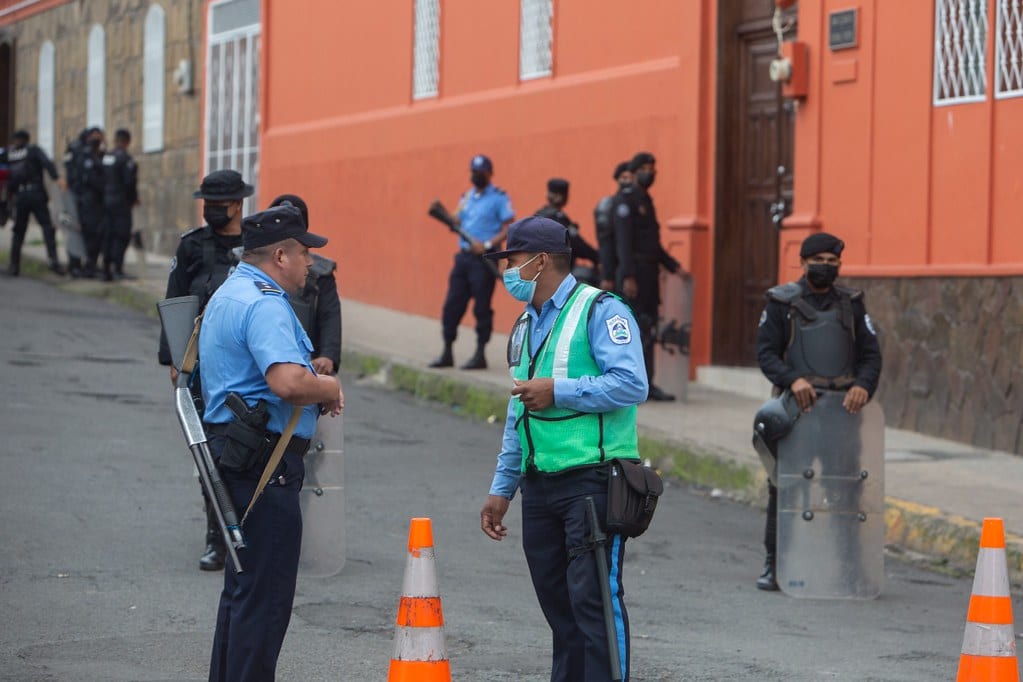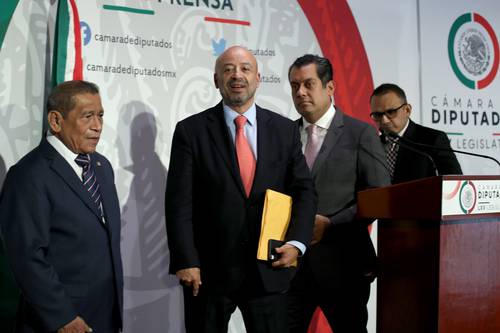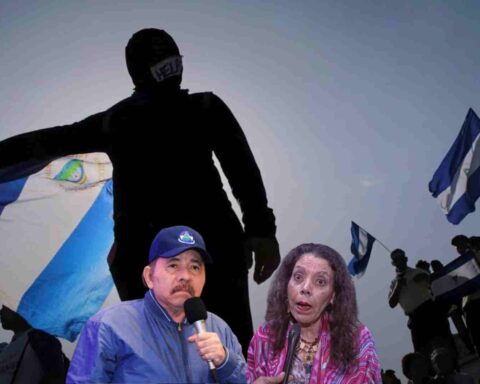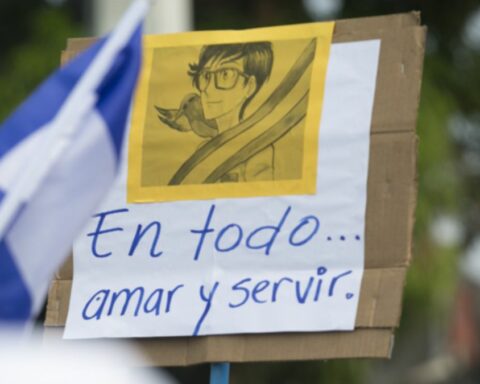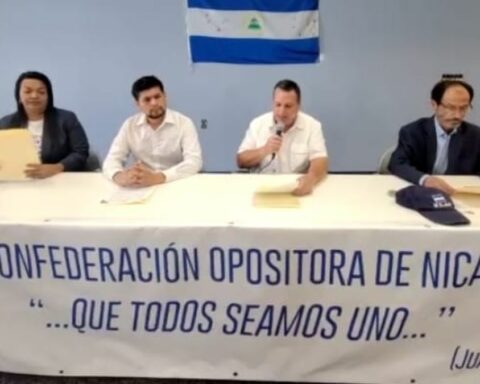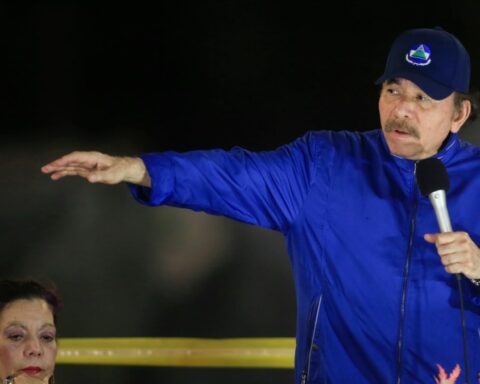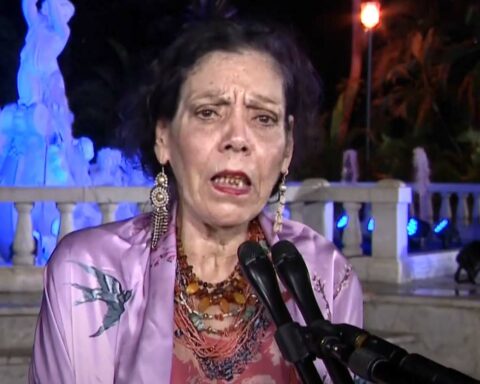The repressive escalation of the Daniel Ortega regime against the Catholic Church, which in fifteen days accumulates the kidnapping of Bishop Rolando Álvarez along with eight people in the Matagalpa Episcopal Curia; the arrest of the priest Óscar Benavidez Dávila -whose motives have not been reported-; the worsening of the siege and surveillance in the parishes of the Diocese of Matagalpa, the desecration of a temple in Sébaco, the prohibition of processions and the massive closure of Catholic radio stations in the north of the country, It is an unprecedented situation in the recent history of Nicaragua that seeks the submission of the Church, confirms sociologist Elvira Cuadra.
The also director of the Center for Transdisciplinary Studies of Central America (Cetcam) explains in an interview with the program Esta Noche, that the Ortega regime is violating the inalienable right of religious freedom and is only leaving three ways out for the Catholic Church: silence which implies self-censorship; banishment or exile, and prison.
The expert assures that all repressive actions increase discontent among the Catholic faithful. In that sense, the government’s ban on processions shows fear that “those marches or religious expressions will somehow become an expression of protest or discontent”, especially because in recent weeks “it has deeply aggravated the religiosity and the faith of Nicaraguan society,” he said.
He also referred to the silence of the Vatican and the timid response of the Episcopal Conference of Nicaragua, which has not united in a single voice of condemnation of the regime’s onslaught against its priests.
More than 15 days have passed since the kidnapping of Monsignor Rolando Álvarez, in Matagalpa, and the dictatorship has intensified the persecution against more priests in the interior of the country. The Cetcam – Center for Transdisciplinary Studies of Central America – presented a report this week on this crisis. What is the objective of this repressive escalation of the regime against the Catholic Church?
What is happening in terms of Church-State confrontation in Nicaragua is unprecedented in our recent history. In other times there have been conflicts, there have been very strong contradictions but we had not had a situation like the one that is presenting itself. What is he chasing? What is the purpose or what is the background of the Ortega-Murillo regime to do this? It is quite clear and what would be expected from them is the submission or subordination of the Church to positions that openly favor the Ortega-Murillo regime.
In November of last year they hoped to ensure their continuity in power with a minimum of legitimacy granted by the citizens, that did not happen because the people refrained from going to the voting due to the conditions in which they were being held. As they do not have citizen legitimacy, they need the legitimacy of other actors and in this case, the Catholic Church is the institution with the greatest credibility and greatest recognition among Nicaraguan society, it also has great recognition and authority in the international community.
The Latin American bishops have shown solidarity and have rejected these repressive acts against the Church in Nicaragua, but it seems that there is no unanimous support in the Episcopal Conference of Nicaragua for Monsignor Rolando Álvarez, whom the regime intends to banish. Are the bishops in Nicaragua divided?
It is evident that the positions that we have seen during the last week on the part of the hierarchy of the Catholic Church show that there are different positions among the bishops of the Episcopal Conference. We have found and are public the pronouncements of different dioceses and different churches in the rest of the country that have greatly supported Monsignor Álvarez and the people who are accompanying them, as well as other priests who have also been victims of persecution and harassment of part of the Ortega-Murillo regime, but not of the Episcopal Conference. The statement that they made is really quite timid, just like the reaction of the Vatican, which was, let’s say, a reaction that did not respond to the expectations that people have in relation to this situation.
How is the silence of Pope Francis and the Vatican interpreted? Some say that the diplomacy of the Holy See is working, but the question is why? To endorse the exile of Monsignor Álvarez or to promote his release?
In both senses, both in the case of the Episcopal Conference and in the case of the Vatican, the silences or lukewarm declarations that we have seen, suggest some hypotheses. One of them is that a negotiation is taking place that is not visible or that is not public and that the crisis is expected to be resolved through that negotiation, I am referring to a negotiation between the Church and the Ortega-Murillo regime.
The second hypothesis is that the Catholic hierarchy from the Vatican to the Episcopal Conference simply does not want a confrontation with the government and is looking for an understanding, a kind of agreement for coexistence from now on.
It would be necessary to see, in reality, what is going to happen in the next few days. The truth is that until now, the options that Daniel Ortega and Rosario Murillo have put on the table for the Church are basically three: silence, forcing them to censor themselves and say absolutely nothing, banishment or exile, as has already happened with other priests, the case of Monsignor Silvio Báez, Father Edwing Román and some others, who have had to leave the country or more recently, the Missionaries of Charity nuns or prison.
There are at least three known cases of priests who have been imprisoned, two of them accused of common crimes and another whose exact reasons for his arrest are not yet known. He is putting them up against three alternatives that are really quite difficult to accept.
While the Police persecuted and besieged priests in the interior of the country, the Bishop of León Monsignor René Sándigo inaugurated a work of the Sandinista Mayor’s Office of León next to the FSLN flag. How do you evaluate the actions of Monsignor Sándigo in the face of the persecution suffered by the Church at the hands of the government party itself, the Sandinista Front?
The bishops have differentiated positions. That has been made clear at other times. In the case of León, even Sándigo’s predecessor, Bosco Vivas, was a bishop who maintained close relations with state institutions or the government. Now it seems that Sándigo also maintains that line, just as he did when he was in his previous diocese and it is clear that it has not changed.
People have evaluated Bishop Sándigo’s attitude unfavorably from before and now with much more reason because they consider it to be a lack of solidarity and support for their counterparts or fellow bishops, particularly Monsignor Álvarez.
Elvira, how do you place the role of Cardinal Leopoldo Brenes in the Episcopal Conference in the face of this crisis?
The role of Cardinal Brenes is central because although he does not preside over the Episcopal Conference, that is in the hands of the Bishop of Jinotega, as he is the person, the figure, the religious leader who is in charge of the most important diocese in the country, which is the Archdiocese of Managua and due to his investiture, a much clearer public position is always expected of him.
It would be necessary to see then what path he is going to follow because in reality it does not correspond to him. He corresponds to the bishop of Jinotega, but people always expect much clearer words from that religious leader in relation to this situation and that has not yet been the case.
This weekend the government banned a procession of the Virgin of Fatima in Managua and also prevented priests and laity from participating in another religious festival in Matagalpa. Why now the regime also prohibits these activities of faith and popular religiosity?
It is at stake that a fundamental and inalienable right is being restricted, which is the right to freedom of worship, to freedom of belief, something that is consigned in the Constitution of the country. The reason why the Ortega-Murillo regime does this is because it really fears that those marches or those religious expressions will somehow become an expression of protest or discontent against the government, above all because what has been doing in recent weeks and in recent months has deeply offended the religiosity and faith of Nicaraguan society, so that discontent can very easily emerge.
That is why it has limited and even prohibited, we saw it with the priest who had to officiate a mass in the courtyard and people attend the religious celebration outside, behind a fence. This reveals the enormous fear of the Ortega-Murillo family in the face of any expression of citizenship.
However, in León Bishop Sándigo carried out a procession without a police siege and the official media promote his religious activities. Does this coexistence agreement that you mentioned with the Ortega-Murillos seek through it to purge religious among those who bow to the dictatorship and those who denounce injustice?
In fact, it is already doing it because if we analyze the attacks and aggressions or the hostilities that have been carried out against the Catholic Church, different priests, religious, temples… at least during 2021 and so far in 2022, it is possible to identify that in effect, as I said before, they are being placed in front of three possibilities: either keep quiet and coexist accepting a subordinate attitude towards the Government or go into exile, leave the country or the threat of jail. If not in El Chipote or in a penitentiary center, in the conditions to which they have reduced Monsignor Álvarez and those who accompany him because they are really besieged inside the Curia of Matagalpa.
You mentioned the case of Father Sebastián López who celebrated a mass in the Santa Lucía de Darío Parish on the street. Despite the police siege, the residents did not stop attending and they were there. What impact is the persecution of the Church having among parishioners and the general population?
In political terms, it is really increasing the level of discontent among the people because belief in and attachment to religious congregations is one of the most sensitive and delicate strings within Nicaraguan society and that is going to have some kind of consequences, which are not they are going to be favorable at all regarding the Ortega-Murillos.
That is already offending one of the most sensitive elements of Nicaraguan traditions and society and in terms, as I said, of fundamental rights, because it is violating one that has been considered an inalienable right, a fundamental right, which is the freedom of religious belief. In another sense, really, people may limit her but they will not change her faith. That is quite unlikely to happen in Nicaragua and they will find their own ways to express their religious beliefs, their faith, but they will also find ways to express their discontent.
And can the dictatorship impose silence on the Catholic Church in Nicaragua and what alternative are left to the parishioners and to all the citizens who repudiate the state of police siege?
One of the things that we analyzed in the bulletin -of Cetcam- is that the Catholic Church is made up of the hierarchy, the religious authorities by the other members of the institution, priest, but also all the believers.
It is likely that we will reach a point where the religious authorities decide to reach that agreement of coexistence or coexistence with the Ortega-Murillo regime. However, that is not going to change what these attacks and this confrontation have generated in the religious sentiment of the population. There would surely be a huge gap between what believers and their religious authorities feel and an even greater gap between what the people and the government feel.

